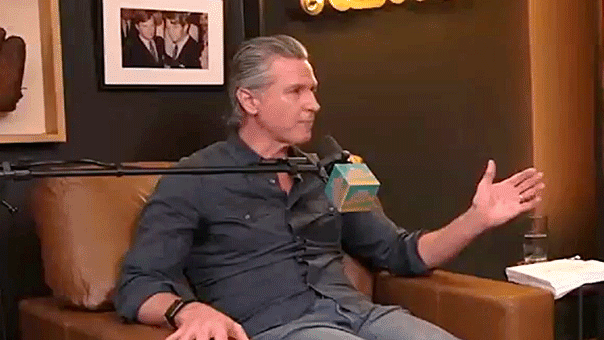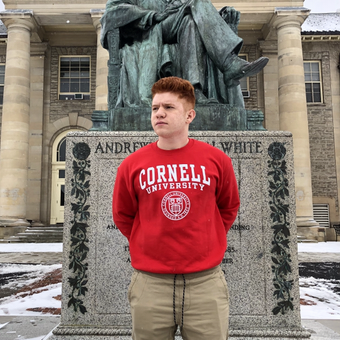CNBC's Andrew Ross Sorkin says Biden's college debt handout will "make things harder" to bring down inflation
CNBC anchor Andrew Ross Sorkin discusses Biden's handout on college debt and its greater impact on the economy.
The New York Times published an article by columnist Paul Krugman Thursday that argued people who are concerned about the impact President Biden's student loan handout will have on inflation are "scaremongers."
Wednesday Biden announced $10,000 handouts for those with federal student loan debt making less than $125,000 and up to $20,000 for Pell Grant recipients. According to the Committee for a Responsible Federal Budget, this plan will cost taxpayers approximately $500 billion.
In his article "Student Debt Relief Versus the Scaremongers," Krugman wrote that Biden's "debt forgiveness was much less generous than many progressives wanted but more generous than many expected," but he said "it will be a big deal for millions of Americans."
As for whether it will "significantly increase inflation," Krugman claimed, "The answer, if you do the math, is a clear no."
MARK ZUCKERBERG TELLS JOE ROGAN FBI WARNED OF ‘RUSSIAN PROPOGANDA’ BEFORE HUNTER BIDEN LAPTOP STORY
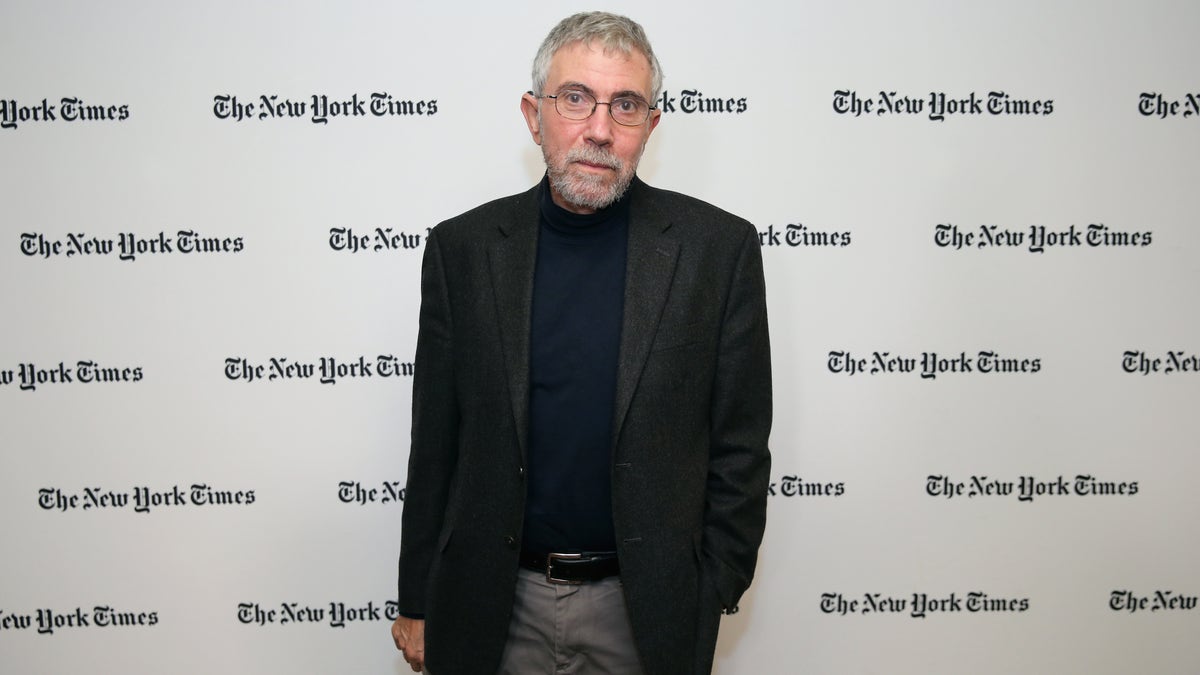
Nobel Prize-winning economist and New York Times Opinion columnist Paul Krugman attends The New York Times Food For Tomorrow Conference 2015 at Stone Barns Center for Food & Agriculture on October 21, 2015 in Pocantico Hills City. (Neilson Barnard/Getty Images for the New York Times)
This marks a stark contrast from the view articulated by fellow New York Times columnist Andrew Ross Sorkin, who said the debt handout will make it harder for the Federal Reserve to bring down inflation.
Krugman admitted the "eventual cost to taxpayers… might be several hundred billion dollars."
On inflation, he argued that the move will not cause a "large" increase in private spending, and hence, will not drive up prices.
He cited a study by Goldman Sachs that estimated that "student loan payments will fall to 0.3 percent of personal income from 0.4 percent."
"This is supposed to feed the fires of inflation?" he asked.
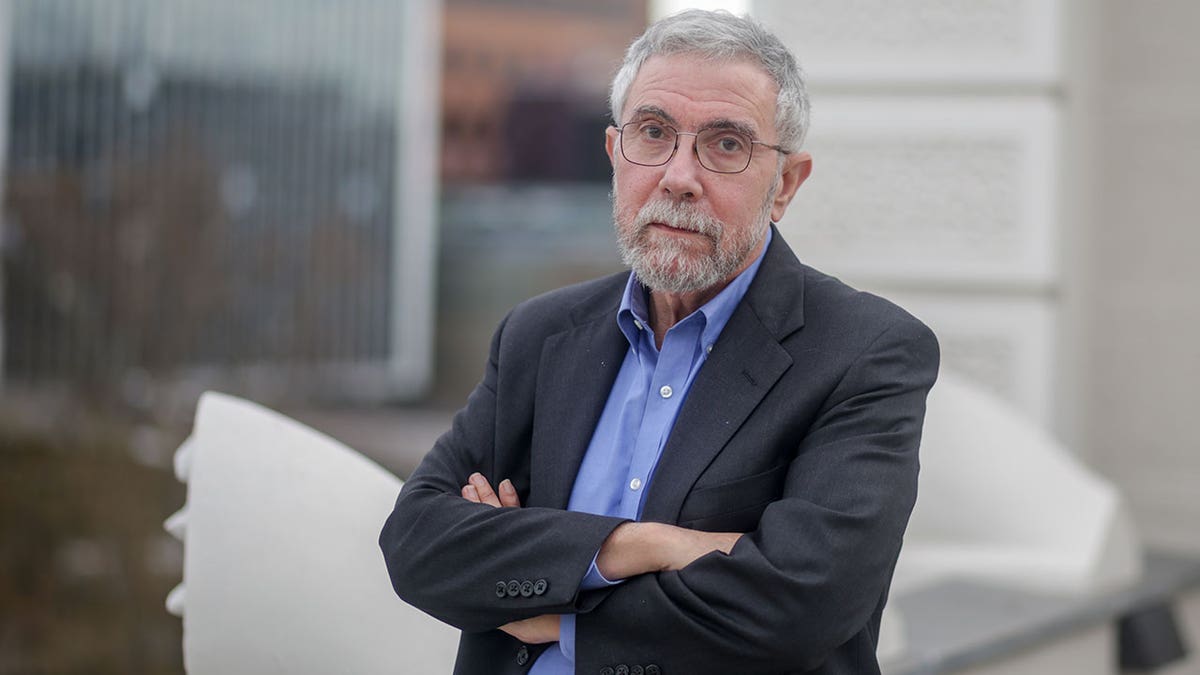
NYT columnist Paul Krugman admitted that he was "wrong" about his initial inflation reports. (Ricardo Rubio/Europa Press via Getty Images))
He dismissed findings that the handout would add to inflation, saying it would add "at most, a small fraction of a percentage point to inflation — which seems high to me."
While he defended handing out thousands to those with college debt as making "it easier for them to move to better jobs and increases their income," he didn't have an answer for the unfairness to those who never attended college.
"And to Republicans whining that this plan does nothing for blue-collar Americans who didn’t go to college, a question: What are you proposing to do for such people — other than cut taxes on the rich and claim that the benefits will trickle down?" Krugman wrote.
"So you should ignore the inflation scaremongers, whose numbers don’t add up," he concluded. "And you should evaluate this plan in terms of political reality — in terms of what Biden can actually do. When you do that, it looks pretty good."
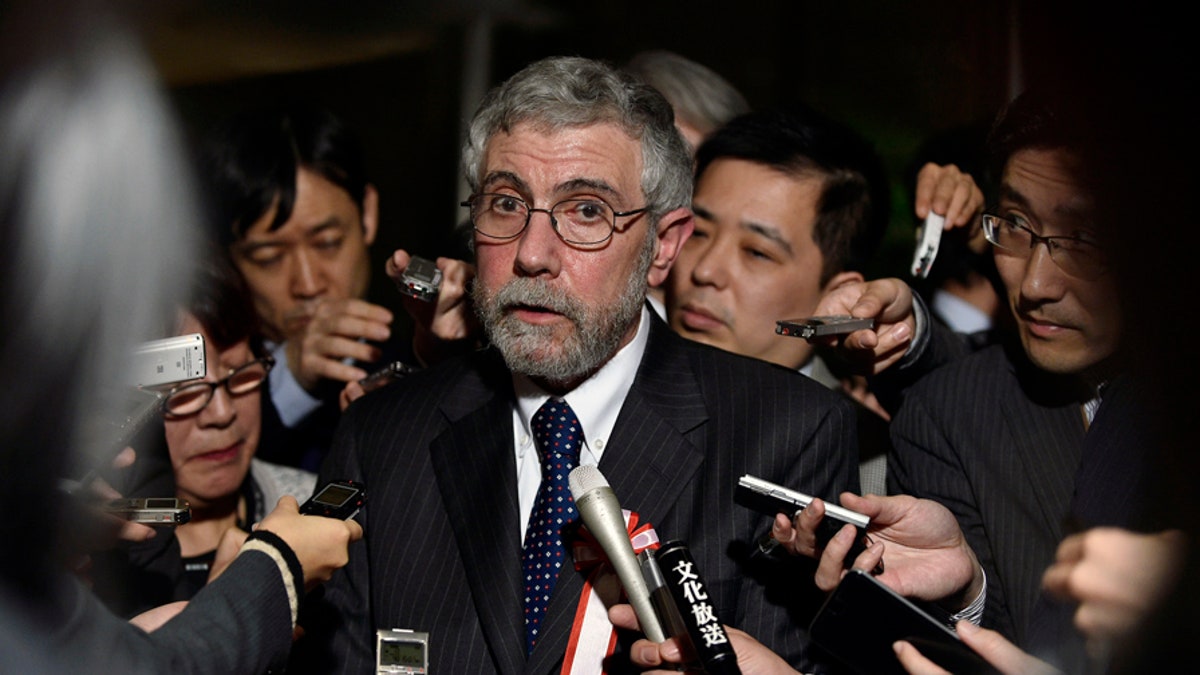
Paul Krugman accused President Trump's economic adviser of a "completely boneheaded" approach to taxes. (REUTERS/Franck Robichon)
CLICK HERE TO GET THE FOX NEWS APP
Critics of Biden's student loan handout argue it will further increase political and economic divides in America, and that it is subsidizing a broken higher education system. People will continue to pay for degrees in majors and from colleges that do not always lead to better employment outcomes.









